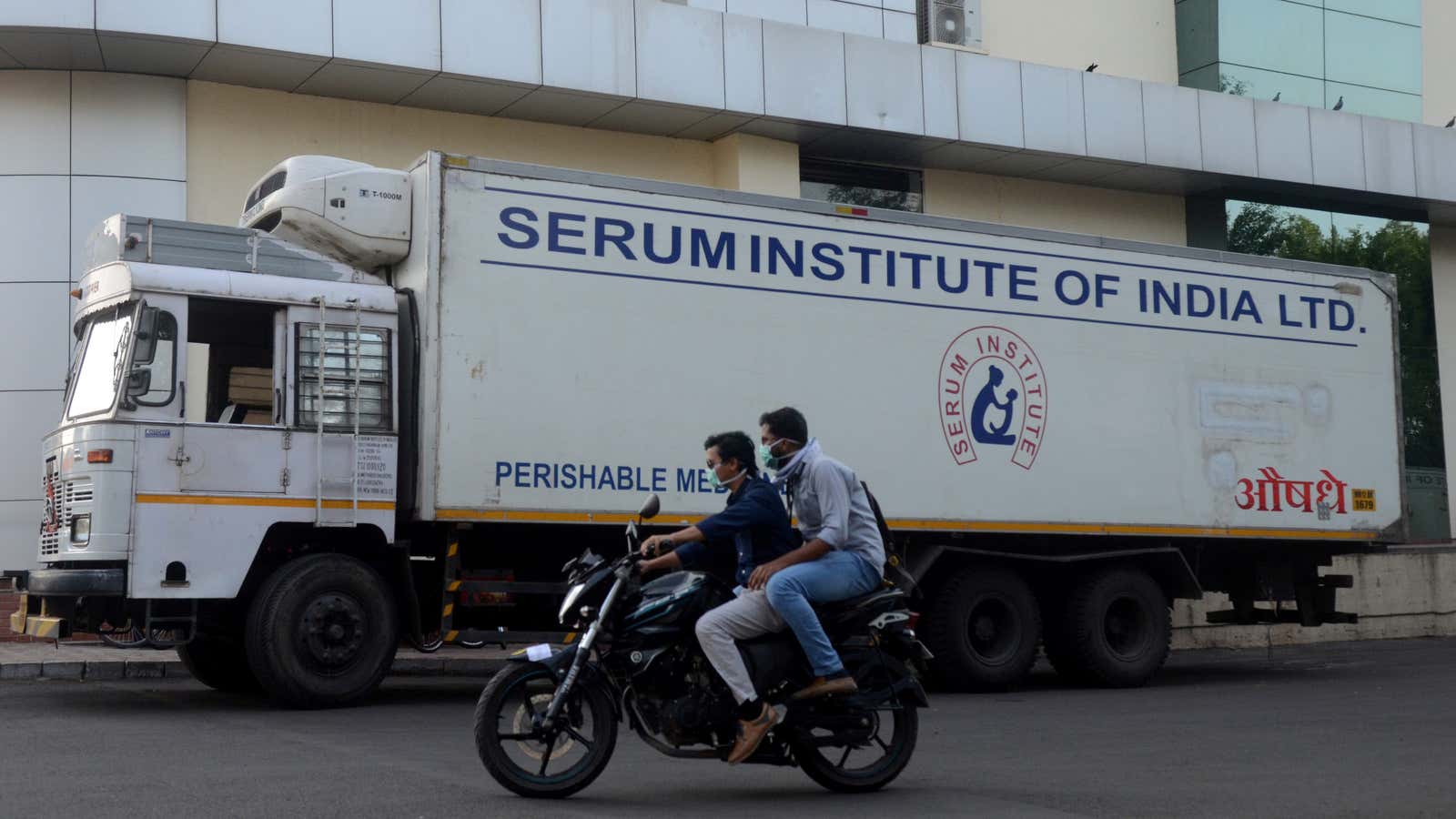A young Indian billionaire has put his might behind the AstraZeneca-Oxford vaccine for Covid-19. But his vaccine effort now appears to be embroiled in a legal battle.
A trial participant based in the south Indian state of Tamil Nadu has sued Adar Poonawalla’s Serum Institute of India (SII), the world’s largest vaccine maker by volume, for serious neurological side effects from the trial. The volunteer has demanded Rs5 crore ($675,736) as compensation and that the trial be immediately paused, The Economic Times newspaper reported on Nov. 27.
The company has counter-sued the trial participant for Rs100 crore, claiming that these allegations are false and malicious.
Called Covishield, the vaccine SII has invested in is being jointly developed by the University of Oxford and drugmaker AstraZeneca. Poonawalla has invested $250 million in the initiative and has said that his company will have 100 million doses of the vaccine ready in India by January.
SII is the leading candidate among the Indian companies’ vaccine initiatives. Prime minister Narendra Modi, on Nov. 28, visited the manufacturing units of three promising vaccine contenders. Besides SII’s plant in Pune, vaccines are being developed by Zydus in Ahmedabad, and Bharat Biotech in Hyderabad.
After Modi’s visit, Poonawalla indicated that he would be applying for an emergency clearance to use the coronavirus vaccine in two weeks.
This timeline, though, may have a few bumps along the way. The office of the drugs controller general of India (DCGI) has now ordered an inquiry into the alleged adverse event of this vaccine trial. On its part, SII is denying the charges and has said that the company had specifically told the participant that these complications were not a result of the vaccine trial.
If a DCGI inquiry does halt the human trial of the Covid-19 vaccine, this would be the second time in nearly three months. On Sept. 9, AstraZeneca had ordered a halt to the UK arm of its trial after an “adverse event” in one trial participant. At the time, Poonawalla’s company had said that the trial would continue uninterrupted in India. But because it had failed to report this adverse event to the Central Drugs Standard Control Organisation (CDSCO), India’s governing body for drugs and vaccines, it was ordered to pause trials. The trials later resumed after CDSCO’s nod on Sept. 16.
